Hotel revenue management is complex even in the best of times. Using past data to guide future revenue predictions is an imperfect science.
Yet, it is a science, and as a science, logic and rationale guides decisions. That past data combined with knowledge of current trends can help revenue managers achieve the optimum occupancy mix at the best rates. Hotel revenue management remained in play even during the pandemic.
However, when the pandemic broke out in March 2020, many analysts said revenue management was dead. How could past data impact an event as wide-reaching as a global pandemic? With international lockdowns, hotels were sunk. After all, no one was traveling.
Or were they?
This article will look at hotels that chose one of three different paths and how those decisions could affect their revenue in the short and longer term.
First, let’s consider the core of hotel revenue management.
The Core of Revenue Management
Revenue management is a science using analytical insights to predict customer demand. By analyzing historical patterns and forecasting, you can have actionable insights to help you sell the right product for the right customer at the right price via the best channel.
Now, you might think, “there’s no relevant historical data anymore.” Or “there’s nothing to revenue manage,” or “there are too many uncertainties for reliable forecasting.”
A year and a half into the pandemic, there are still many hoteliers who say such things. They are skeptical about adopting and investing in revenue management strategies for their hotels.
The reasons are always pretty much the same. Many hoteliers said things like the following:
- “There are still too many uncertainties ahead”
- “It doesn’t make sense to forecast now.”
- “There are virus variants,”
- “We don’t know if vaccines are effective,”
- “Governments can implement lockdowns anytime.”
In other words, these hoteliers choose a passive approach to managing their revenue. Rather than adapting to the current reality, they seem to be waiting for the pandemic’s end. Such an approach is more emotional rather than rational.
Why It Makes Sense To Forecast Even amid A Pandemic
Naturally, uncertainty is part of forecasting activities. Nobody predicted 9/11, the 2008 global financial crisis, or any of the natural disasters that have devastated entire destinations and killed thousands of people.
Yet, at the same time, revenue managers have forecasted revenue models and readjusted them as needed after such unexpected events.
There’s a paradox here. That paradox is that a sudden terrorist attack, an earthquake, or a tsunami is much more unpredictable than a virus. After all, epidemic viruses have always existed in human history and present mathematical patterns. Scientists over the centuries have studied such patterns. This means there’s a certain degree of predictability and calculus of probability.
It has to be noted that political decisions affecting tourism and hotels in the last year and a half have resulted from scientific evaluations based on this calculus of probability.
Yet, some hoteliers keep feeling overwhelmed by the uncertainty of events. Rather than take a proactive stance, they’d rather sit back and try to play catchup.
Let’s look at three ways hoteliers have approached the pandemic:
- Closing
- Becoming a Quarantine/COVID Hotel
- Remaining a “Regular” Hotel
Shutting Down The Hotels Or Becoming A Covid/Quarantine Hotel
In 2020, there were no vaccines and a low immunity rate. Now, many countries have growing vaccine rates, and more people are traveling.
Using 2020 as a guiding light of sorts, we can see which hotels outperformed expectations during the pandemic and are emerging stronger.
You know that some hotels decided to close their doors during lockdowns. Some cut or furloughed their staff thinking they’d wait for better times ahead.
Those approaches might have made sense for a short time, yet, they’re unsustainable. Even more so when financial aids from governments are insufficient.
Closing the hotel implies zero revenue. Yet, every hotel has fixed costs (rent, mortgage, taxes, etc.) No hotel can operate at a loss indefinitely.
Other hoteliers chose to turn their hotel into a Covid or quarantine hotel. After all, some business is better than none, or so the theory went.
There are two variations of these hotels.
- Operating as a COVID hotel or “hospitel” (hospital+hotel)
This type of hotel hosts guests that tested positive to Covid and need to self-isolate. They have mild to no symptoms, so they don’t need to stay in a real hospital.
- Operating as a quarantine hotel
Foreigners or residents returning from high-risk countries may be required to quarantine even if they’ve tested negative or are vaccinated.
Such hotels are officially designated and approved by governments. From an operational point of view, both of these hotels imply low hospitality costs. Since these guests won’t benefit from the activities and facilities of the hotel, staffing is minimal. The guests will stay in the rooms for 10-14 days, depending on local regulations.
On the surface, these options looked like an excellent opportunity to stay afloat amid a pandemic. After all, such options ensured some stream of revenue with relatively low costs. Many hoteliers saw them as the only alternative to a temporary or permanent shut down.
Too good to be true? Well, all that glitters is not gold.
Quarantine Hotels Drawbacks
While the peculiarities of quarantine hotels vary by country, there are some common shortcomings:
1. There is very little revenue management and dynamic pricing in covid/quarantine hotels.
The rate is just half of pre-covid ADR (average daily rate) in the best-case scenario, if not one-third. The price is always fixed, and the hotel, in many cases, is not even free to decide it as it’s a governmental decision/negotiation.
2. There’s no pre-stay engagement. The guests didn’t choose the hotel or the room type in most cases since the government assigned the hotel.
3. The in-stay engagement is also almost non-existent as well. Since the guest is confined to their room, they can’t benefit from the hotel services and interact with the staff. Such an experience doesn’t give them a taste of your hospitality.
4. Could result in bad reviews – As a hotelier, you’re going to do your best to make your guests comfortable. However, the imposed stay can feel like a prison, and it’s not likely to turn into lots of rave reviews on Tripadvisor. If you do get reviews, they could come sometimes from guests frustrated with the mandated quarantine.

5. Can’t host other guests – For obvious reasons of contamination risks, covid/quarantine hotels cannot host other guests. It’s not possible to mix quarantined guests staying 10-14 days with outside guests who wish to stay 2-3 days for other reasons.
The restrictions mean these hotels must close inventory availability due to contractual obligations. Essentially, these hotels have to reject bookings on the OTAs, Google and other channels while the government contract is in place.
6. Search Engine Rankings Drop – Online algorithms reward those hotels with a high conversion rate between visits and bookings. To maintain a high conversion rate, it’s necessary to remain open, visible, and bookable. If you don’t, your conversion rate and ranking will drop.
It becomes a vicious circle of invisibility. When the government contract ends and you try to reopen as a regular hotel, it can take months to reclaim your earlier rankings and target your typical guests again.
7. Have to Recruit and Train New Staff – Yes, you can run this type of hotel with almost no staff, but once you return to traditional hospitality, you have to find and train new staff. It won’t be easy at all. It can be like starting all over.
8. Volatile – We know how dangerous it is to put all your eggs in one basket and rely only on one segment. The quarantine demand is very volatile and subject to epidemic curves. Hotels may run at 60-70% for some months during covid waves and then dramatically drop at 5-10% when the virus is again under control. Paradoxically, the worse the epidemiological situation, the better for these hotels. However, as many hotels try to apply for this opportunity, the share of this market can further shrink
9. Not much chance of repeat guests – Even if you have these guests’ emails, it’s not likely they’ll want to become repeat guests due to their mental association with your brand.
10. Not to mention the risk of losing your existing frequent guests that will turn to regular open hotels when they need accommodation.
Are there other alternatives?
As a hotelier, you could stay closed or become a covid/quarantine hotel. Is there a third option? Yes, of course: revenue management.
As mentioned before, revenue management is the art of selling the right product to the right customer at the right time for the right price and via the right channel.
That’s a lot of “rights,” and it takes some know-how to make it happen.
Let’s look at how some hotels handled revenue management during lockdowns. Some hotels stayed open despite country-wide lockdowns, and they kept their revenue management strategy in place. They did so by analyzing the epidemic curves and the market. As a result, they were able to predict the demand with a high degree of reliability and successfully drive revenue.
Perhaps even better, by staying open, not only did they drive revenue during lockdowns but were in a stronger position to capture demand when leisure travelers came back.
Who did they serve during the lockdown?
First of all, even during lockdowns, people are still exempt from restrictions and are allowed to travel for essential reasons and out of necessity. Essential means that the work is so critical that the facility or industry may be unable to continue without that worker. It also means that no one else can undertake the function or role, and it cannot be performed remotely.
Those essential workers could be healthcare workers, construction or police, logistic operators, servicemen and women, journalists, government officials, and many more.
These guests look for and autonomously book accommodations on online channels or directly (after viewing online platforms). This means the task of revenue management has been to intercept this demand most effectively in terms of the offer, communication (text, descriptions, pictures), and prices.
Of course, we refer to people who can behave as regular guests and move about the hotel.
Even though demand is much lower than normal during lockdowns, you should consider that supply and competition are also lower than normal. Some hotels decide to close, and others turn into covid/quarantine hotels.
Regardless of pandemic stages, this market segment has remained stable. Such business/essential travelers have helped hotels with strong revenue management practices to break even or cover a large part of their fixed costs during lockdowns. Moreover, thanks to a higher online conversion rate, these hotels are frontrunners as soon as epidemic curves allow for easing restrictions and a return of leisure and groups/MICE demand.
Online, OTAs, and Google push the visibility and reward the hotels that remained open, and as such, they’ve gotten more business throughout the pandemic. And with more visibility, these hotels can afford to sell at much higher rates recouping previous losses.
The Importance Of Brand Reputation Amid A Pandemic
Non-quarantine guests are more valuable than quarantining guests for a hotel. They are more likely to buy ancillary services (e.g., parking, room service, upgrades.) They’re also more likely to become repeat guests and leave a positive review on OTAs, Google, TripAdvisor, etc.
Brand reputation is essential for revenue management. It means more visibility and reservations and selling at higher rates.
It’s easy to understand why hotels with 9+ on Booking and 4.5+ on Tripadvisor have fared much better than other hotels during the pandemic.
But the quality of reviews is not the only important parameter. Equally important for the algorithms are the quantity and recency of reviews. The better reviews, the more numerous and recent, the higher goes the ranking and conversion rate.
When searching properties on OTAs using the filter “top reviewed,” it’s not uncommon to find hotels with lower scores but more and fresher reviews ranking higher than other properties with higher scores but less and dated reviews.

These algorithms reflect typical guests’ behavior. They’re influenced not only by the score but also by the number and recency of reviews. And in this sense, it’s easy to understand the competitive edge of these regular and open hotels as opposed to covid/quarantine hotels or hotels that decided to shut down. Imagine a hotel (there are lots worldwide) where the last online review dates back to February or March 2020, before the WHO declared the pandemic breakout.

If a potential guest chooses between a couple of similar quality hotels, location, score, and price, which would most influence the final decision?
The one with 1.000 reviews mostly dating back to the pre-covid period, or the one with 2.000 reviews accumulated throughout the pandemic? What could that potential guest think when they see a property that hasn’t had a new review in nearly two years? Would they wonder if the hotel had been closed? Or maybe it was a quarantine hotel? They may wonder if that hotel can provide the expected level of hospitality after such a long time of inactivity.
Displacement Analysis During The Pandemic
Hotels in countries with low immunity rates or coping with covid waves should carefully run displacement analysis and market segmentation to understand the pros and cons of each segment in the short, medium, and long term. In other words, hotels should ask themselves: “What is best? Maybe get 100 now and 50 later (in case of covid/quarantine hotels)? Or maybe 50 now and 400 later (in the case of hotels that stay open online and apply revenue management)?
After all, the power of revenue management is to capture demand when it seems there is none (e.g., during lockdowns.) Then, charge higher rates when there is an excess of demand (e.g., when travel restrictions lift.) A good revenue manager can predict when it makes sense to accept reservations and when to turn them away.
Revenue managers analyze the epidemic curves and patterns. For example, the RT index, the immunity rate, the hospitalization, and the fatality rate, combined with seasonal and environmental factors, are reliable indicators. These help revenue managers predict the overall demand when restrictions lift or are implemented. *
Flexibility allows revenue management-oriented hotels to allocate the correct number of staff (both fixed/in-house and part-time/variable/outsourced) at the right time. This optimizes costs, targets the right market segments at the right time through the right channels, prices, and communication. It also activates the right services and amenities at the right time. By staying open and achieving satisfactory results, it’s been possible to save a significant part of the staff and keep their motivations high. Then the more motivated the staff, the better the reviews, and your hotel achieves improved financial results in a virtuous circle.
A Practical Example
From our perspective, European hotels that adopted revenue management techniques in 2020 and 2021 achieved positive results. Statistically speaking, the break-even point for hotels is in the 30-50% range of occupancy. These hotels achieved this or better during lockdowns. Once the population achieved a 60% immunity rate as in July and August 2021, the profits were astonishing for these hotels.

Despite the pandemic, historical data is still relevant. Using 2019 as a baseline, hotels that applied revenue management through the pandemic are now 15% to 30% above 2019 profit levels.

We expect those results to grow as worldwide immunity goes forward.
On the other hand, hotels that were (or still are) quarantine hotels or closed for a long time might find themselves even 50% below pre-covid performances.
Conclusion
Whether your hotel is in a country with a 5% or 85% of immunity rate, revenue management makes all the difference in the world between thriving and failing.
Hoteliers that faced the pandemic with a revenue management-oriented approach based on science, medicine, and mathematics have obtained much better results than those driven by emotions.
While nothing is 100% certain in life, a talented revenue manager can still extract valuable past data and apply it to the future. No matter what happens, they can forecast useful marketing approaches to maximize profitable occupancy rates.
Revenue management is anything but dead.
Download these ebooks for free:
10 things to know about revenue management
5 revenue tips for city, beach, mountain, countryside hotels
Footnotes:
* -The RT index determines the number of people that can be infected by one person on average. As long as this parameter remains below 1, we can rest easy to some extent, since the epidemic is receding. As soon as it rises above 1 the epidemic is growing, and positive cases will surge (and restrictions are likely to follow).
-The immunity rate is the percentage of immune people, either after contracting Covid or getting vaccinated. It can be calculated by summing those who officially tested positive since the beginning of the pandemic and those who got fully vaccinated.
Those recovered from Covid are usually not urged to vaccinate or they are recommended to just take only one shot six months to one year after infection. Furthermore, as they are already immune, scientists recommend saving their doses for those who really need it.
Scientists agree that immunity, either natural (after contracting covid) or vaccine-related, is effective also against novel variants as it protects from serious illness and hospitalizations.
Even if not 100% accurate, the immunity rate can give to hoteliers an idea of the amount of susceptible populations that can be hospitalized in their country and forecast possible scenarios for full recovery.
-The hospitalization rate is the percentage of beds occupied by covid patients compared to the total available beds. Of course, if people are immune and don’t need hospitalizations chances of lockdowns become really low as economic damages would outweigh health benefits.
-The fatality rate is the proportion of deaths from covid compared to the total number of people diagnosed with the infection for a particular period. All these data can be sourced from Nature, the CDC, the local Ministry of Health, Our World in Data, and Johns Hopkins University.





